By Blaine Taylor
On May 26, 1940, as the armies of Nazi Germany roared across prostrate France and the British Expeditionary Force was in the midst of its evacuation by sea from the European continent, Italian Army Marshal Pietro Badoglio, 69, was in the waiting room of the Palazzo Venezia in Rome. This was the seat of government of Fascist Italy’s Premier and Duce Benito Mussolini, who was also, along with King Victor Emmanuel III of the House of Savoy, a comarshal of the Empire founded by Badoglio’s conquest of Ethiopia in 1936.
“I Am Ready To Declare War On England”
Badoglio was the country’s senior marshal, having received his coveted baton in 1926, the first issued under Il Duce’s regime. He was chief of staff of the Comando Supremo, the Italian Supreme Command of the Armed Forces, which included Italy’s sole air marshal, Italo Balbo, 44, a colorful aerial pioneer and at the time governor-general and Italian commander-in-chief in the Fascist colony of Libya. At this moment, Marshal Badoglio, who was there on routine business, was surprised to see his junior partner (Balbo had been created a marshal in 1933 after his spectacular aerial armada flight to North America and back) also in the waiting room, about to be ushered in to see Mussolini.
As they entered the huge, cavernous office that Il Duce occupied alone, they could see that he was treating them to one of his famous histrionic poses: jaw thrust out, bald head snapped back, eyes staring intently at them, hands on hips, and feet planted on the floor spread apart behind his oversized desk. Recalled Marshal Badoglio in his postwar memoirs, Italy in the Second World War, “What was he going to say? Suddenly, I found that I had difficulty breathing.… He announced: ‘I wish to tell you that yesterday I sent a messenger to Adolf Hitler with my written declaration that I do not intend to stand idly by with my hands in my pockets, and that after June 5th I am ready to declare war on England [as well on already defeated France by implication.]’”
Neither marshal spoke, until, by Badoglio’s account, he asserted, “Your Excellency, you know perfectly well that we are absolutely unprepared—you have received complete reports every week. We have about 20 divisions with 70 percent of the necessary equipment and training, and about another 20 divisions with 50 percent. We have no tanks. The Air Force, as you know from General [Francesco] Pricolo’s reports, is grounded. This is to say nothing of stores—we have not even sufficient shirts for the Army. In such a state of affairs, how is it possible to declare war? Our colonies lack everything. Our merchant shipping is on the high seas. It is suicide.”
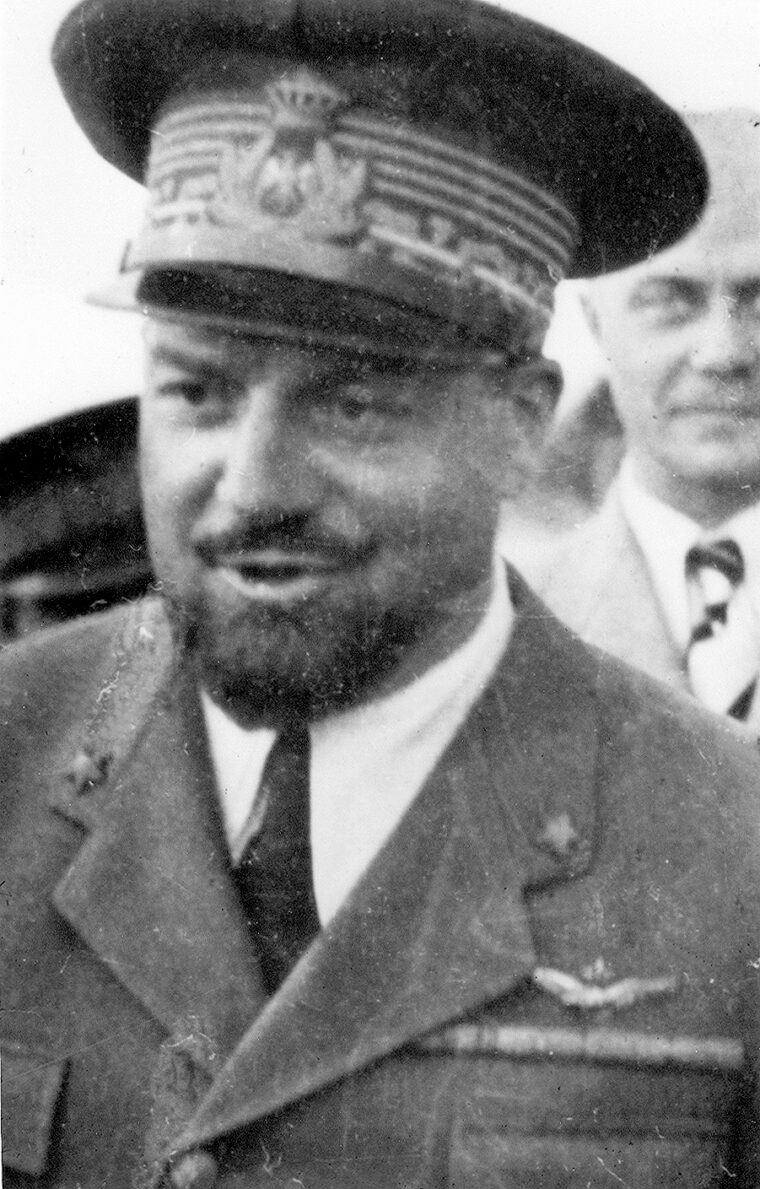
Laying Claim To A Few Hundred Dead Italians
Having run the Italian Air Force for seven years until 1933, and overseen the administration of Libya since then, Marshal Balbo heartily agreed with his senior colleague’s assessment, all of which the boastful Duce airily brushed aside. Mussolini said that the war was already as good as won by the Germans, and would be over by September when the British either surrendered or found their island invaded. He needed a few hundred dead Italians in order to claim Italy’s share of the postwar spoils at the peace conference when he sat down at the negotiating table with the victorious Führer.
On June 10, 1940, from his famous balcony at the Palazzo Venezia, the scene where he had announced the creation of the Italian Empire in 1936, the enraptured Duce now declared war to enthusiastic throngs of Fascist Party faithful cheering him on below. However, it was a hollow sham for, like the two marshals on May 26, the Italian people did not want the war. They saw no real reason for it.
What both Mussolini and the King hoped to achieve in war were the same territorial gains for which Liberal Italy had entered World War I: the French lands of Nice, Corsica, Savoy, and parts of North Africa. When these had been denied to a victorious Italy fighting on the side of the Allies by the Versailles Peace Treaty of 1919, Mussolini’s Fascist Party, composed largely of veterans like himself and a young firebrand named Italo Balbo, began their steady rise to political power in 1922. The King had appointed Mussolini premier rather than have the Army wage a civil war with his black-shirted Fascists.
No Mere Pipe Dream For Mussolini
Almost from the beginning of his dictatorial reign, as noted by author MacGregor Knox in his superb work, Hitler’s Italian Allies: Royal Armed Forces, Fascist Regime, and the War of 1940-43, Il Duce had schemed to engage Italy in a war anywhere he could find one. First, he had subdued Libya with forces under Marshal Rodolfo Graziani, then taken Ethiopia with Badoglio. Next came Italian intervention in the Spanish Civil War with Nazi Germany, aiding, along with the Führer, the Nationalists of Generalissimo Francisco Franco, and finally the occupation of Albania in early 1939.
On the face of it, Fascist Italy’s vaunted 10 million bayonets looked victorious and supreme, but the two marshals and their vainglorious Duce knew better. Mussolini’s ultimate goal was to drive the British out of Egypt, take the Suez Canal, and make the Mediterranean Sea an Italian lake by defeating the Royal Navy there with Italy’s own increasingly powerful battle fleet. By 1940, moreover, this was no mere pipe dream, for a united German-Italian-French fleet might well have posed a serious threat to the Royal Navy.
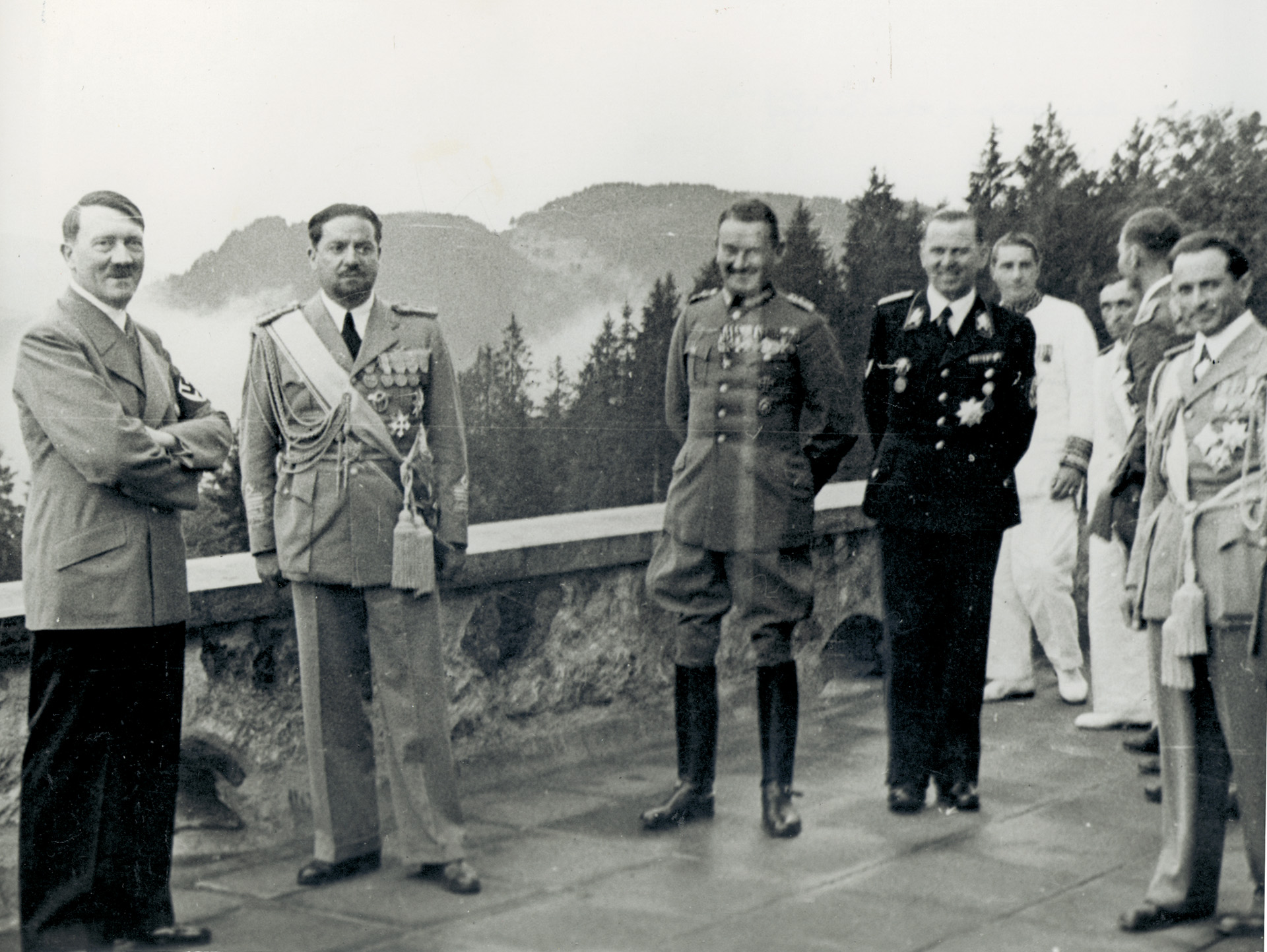
The reality behind the Fascist façade was a completely different story, however; the decade of Italian wars before World War II had simply exhausted the Empire’s ability to wage another war before 1943. In fact, Hitler had agreed to this date to wage war when Nazi Germany and Fascist Italy had signed their Pact of Steel in Berlin on May 22, 1939.
The Axis Gamble
On September 1, 1939, Hitler had jumped the gun on Italy by invading Poland, and when Britain and France declared war on Germany two days later, Mussolini shamefacedly begged off from supporting Hitler as an active belligerent until France was defeated. In March 1940, at their Brenner Pass meeting, Hitler said he would attack in the West shortly, with Il Duce pledging to come into the war then.
Italy’s armed forces were in no condition to enter the war in 1940. The Army was in a shambles, the Air Force was outdated. Under Balbo it had become one of the world’s best by 1929, but a decade later it was still using biplanes. The Navy was the only serious threat to the Allies.
As Marshal Badoglio had written, Mussolini knew all this and gambled anyway. Mussolini feared that if he didn’t fight at Hitler’s side, the angry Führer might well invade Italy herself, as in fact happened in 1943, after his own fall from power.
For his part, Balbo had opposed all three of Fascist Italy’s foreign adventures before 1940 and had participated in none of them, since he had gone to Libya in 1933, after Libya was conquered and two years before the Ethiopian campaign began. Unlike the other Fascist leaders, he had traveled widely abroad—to the Soviet Union, the United States, Africa, and South America—all areas that in the end would fight Italy in World War II. He knew that it was simply impossible for Germany, Italy, and later Japan, to defeat the whole world as the Axis Pact implied.
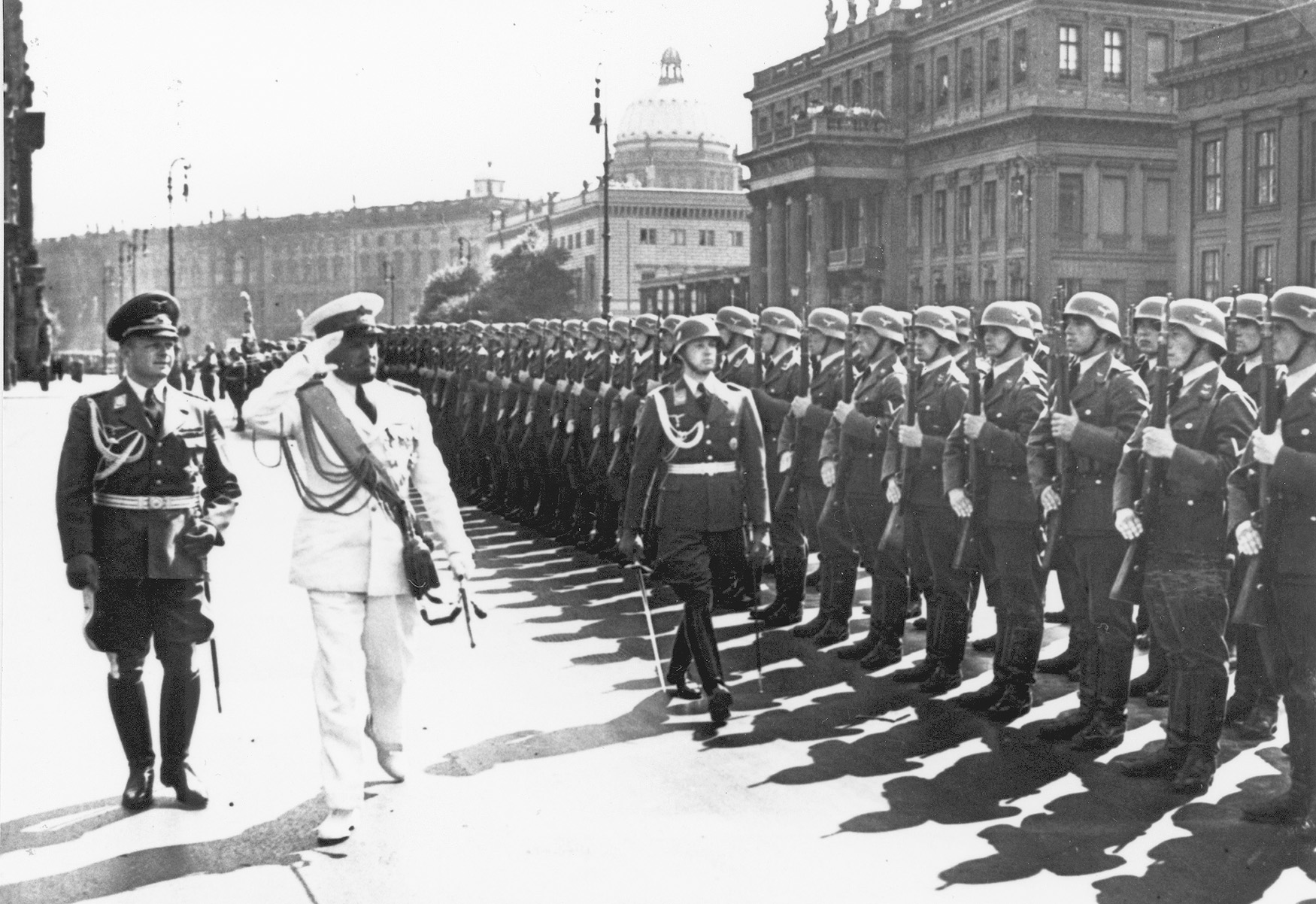
Balbo Prods Party To Gain Power
Balbo had been one of the Quadrumvirs of the Fascist “March on Rome” in October 1922, and thus Mussolini could hardly afford to ignore his views within the close-knit leadership corps. Balbo, Il Duce believed, was the only top Fascist leader really capable of taking effective action against him and supplanting him as leader of Italian Fascism.
Balbo saw Fascism not as a movement of conquest but as a means of improving Italy, Libya, and Ethiopia, suppressing internal communism, and raising the standard of living of the people at home while increasing the nation’s prestige abroad through his famous aerial cruises around the world.
He was born on June 5, 1896, the son of a schoolmaster. Well educated and a university graduate, Balbo was first and foremost a man of action as well as a writer who published his own newspaper, articles, and books. He met fellow journalist Mussolini in 1914, when Balbo was 18 and the future Duce 31. Both wanted Savoyard Italy to renounce its alliance with Hohenzollern Germany and Habsburg Austria-Hungary, which it did in 1915, and switch sides to join the Allies. Both young men joined the elite Italian Army mountain troops fighting the Austrians and both were wounded.
By the time the war ended on November 11, 1918, Lieutenant Balbo, 22, had won three medals, a bronze and two silvers. Mussolini, too, had been wounded in combat. Balbo remained in the Army until May 1920, met his future wife, completed his university studies, and began formal training for a possible career in diplomacy, politics, or civil services. However, the political unrest of the postwar era soon engaged his attention as a hothead Fascist Party leader battling the Italian Reds in the streets. In 1922, it was Balbo, rather than the more cautious Mussolini, who prodded the party onward to seize power in Rome. At this time, Balbo was more republican than anything else, a stance he would have cause to regret later as the King’s powers decreased and Il Duce’s grew on the road to World War II.
“The Future Of Italy Is In The Sky”
On January 12, 1923, Il Duce reorganized the various violent Fascist squads into the Voluntary Militia for National Security with General Emilio DeBono as its chief and Balbo as a member of its high command. The following year, when an anti-Mussolini Socialist member of the Italian House of Deputies disappeared and was later found to have been murdered by the Fascists, Balbo and other top Fascists were implicated.
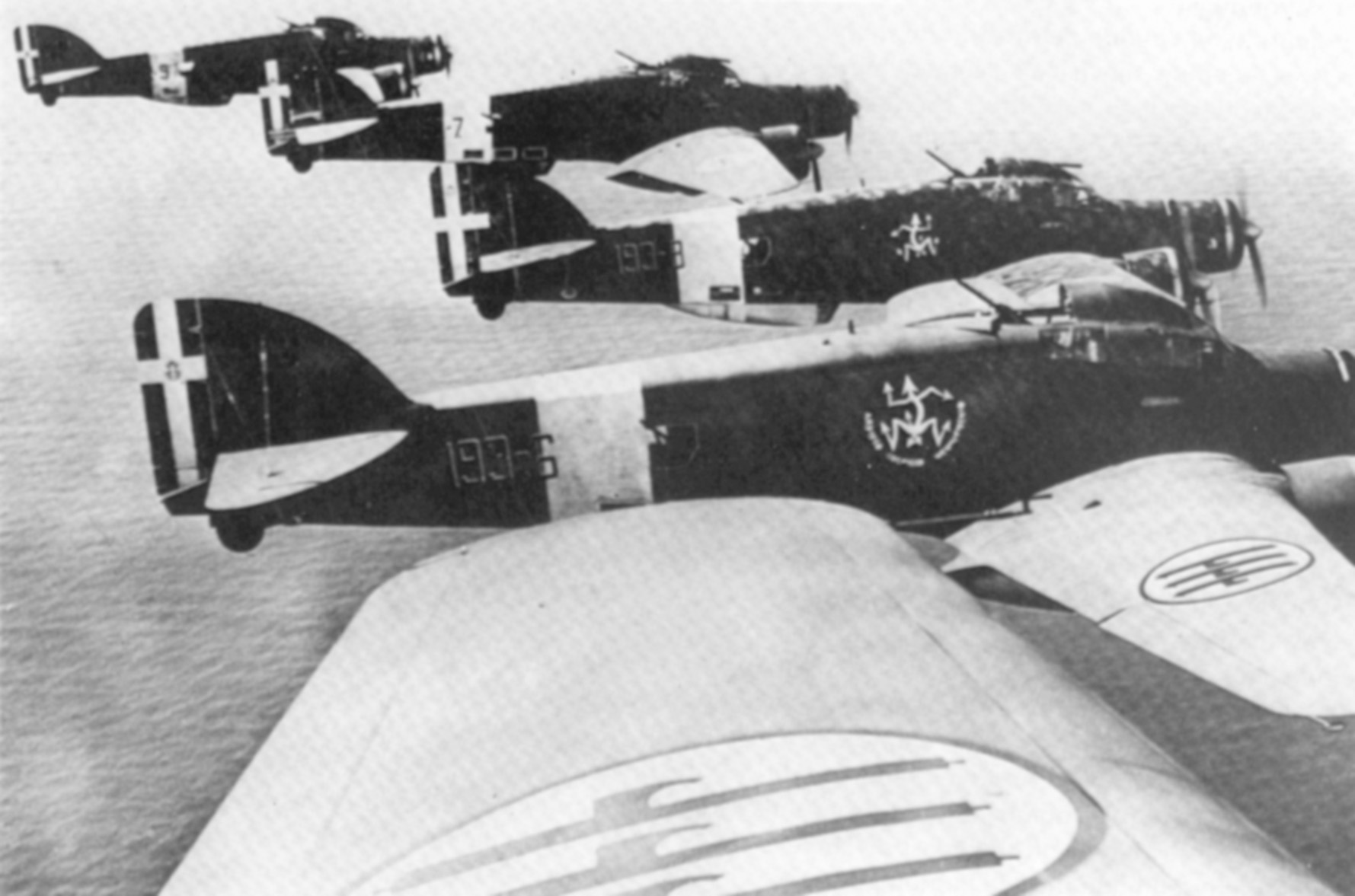
Balbo advised Il Duce to punish the actual murderers. DeBono was forced to resign in the wake of the scandal. Balbo was still, however, the ruling Fascist boss of his own hometown of Ferrara, as well as a member of the party’s reigning body, the Fascist Grand Council. He also succeeded DeBono as head of the Fascist Militia, another important post within the party.
Mussolini now began to both fear Balbo and be jealous of him and sought to channel his ruthless energies and ambitions into other directions. In 1923, Il Duce had created the Italian Air Force as a separate service from the Army, and it was to this service that young Balbo now gravitated.
Liberal Italy had been the first to use aviation as a tool of combat to take Libya from the Ottoman Turks in 1911, and during World War I had built up a respectable service of aces, fighters, bombers, and even an industrial aerial base. Mussolini himself was a pilot. As early as 1923 as a general of the Fascist militia flying around Italy, Balbo wrote, “I believe that the future of Italy is in the sky.”
Balbo Wary Of Mussolini’s Alliances
On November 6, 1926, Il Duce appointed Balbo undersecretary to the Aeronautica. Mussolini himself held the secretary’s portfolio in the government. Balbo earned his pilot’s license and wings the following year. He set out to make the Aeronautica one of the best air forces on earth, trained its cadre of pilots and crews, built an air ministry building that still stands in Rome today, and took his planes and pilots on a series of four aerial cruises around the world by 1933.
Unnerved by Balbo’s increasing popularity, the jealous Duce exiled him to the less glamorous post of governor-general of Italian Libya, where by all accounts, even those of the Libyans to this day, he was an excellent administrator. Thus, once again, the handsome, urbane, swashbuckling Balbo had managed to upstage his Duce—at least in Mussolini’s eyes.
The cause of the final rupture between the two men, however, was Il Duce’s growing admiration for the Nazi Germany of Hitler after 1937, when he had made a state visit to the Third Reich. Despite a certain affection for German Luftwaffe Field Marshal Hermann Göring as a fellow airman, Balbo was not impressed by the Nazi leaders. Göring, pilot Rudolf Hess, and Heinrich Himmler all came to visit Balbo in Libya, and he met Hitler and Goebbels as well. He was opposed to any political and military alliance with the Nazis, and told Mussolini so to his face, believing that, in the end, they would betray Italy, as indeed they did.
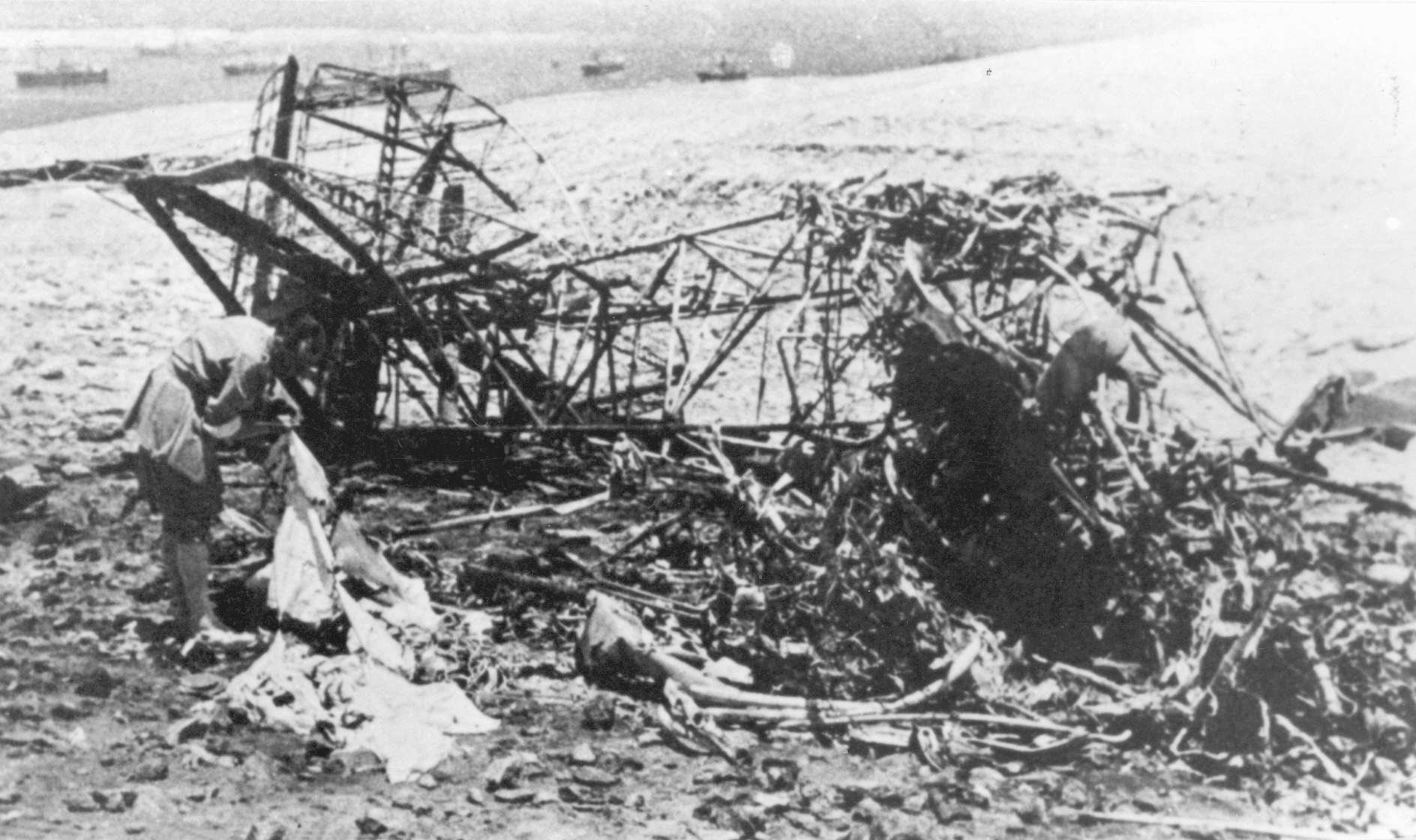
“There Won’t Be Enough Lampposts In Piazza Venezia To Hang You All”
Thus, Balbo greeted the news of Mussolini’s decision to go to war at the Nazis’ side with great sadness. He believed that the war would destroy Fascist Italy, his career, and his very life, and he would be proved right on all three counts. He thought the war would last six months and that he would die in action. “As for the rest of you,” he told his colleagues on the Fascist Grand Council, “there won’t be enough lampposts in Piazza Venezia to hang you all.” By the war’s end, they would all be either executed by die-hard Fascists after Mussolini’s 1943 fall or killed by the Red Partisans without trial, thus obviating the need for an Italian version of either the Nuremberg or Tokyo war crimes trials.
As for Balbo, he returned to his military command in Libya apparently resigned to his fate and believing his situation there was “practically hopeless, caught between the British in Egypt and the French in Tunisia ‘like a slice of ham in a sandwich.’” Nevertheless, as a theater commander-in-chief of an army that included Italian infantry and Air Force units as well as native Spahi foot soldiers and colorful cavalry, Marshal Balbo was obliged to put a good face on it for appearances’ sake and was preparing for an active war against the British when his personal aircraft was suddenly shot down on June 28, 1940. All aboard—including Balbo—were killed.
Immediately, speculation began that a jealous and fearful Duce had had his possible rival assassinated by Italian Navy antiaircraft guns, and this speculation continues even today. However, both Italian Foreign Minister Count Galeazzo Ciano, Mussolini’s son-in-law and a rival of Balbo, and his first biographer in English, Dr. Claudio G. Segré, believe that the incident was, in fact, an aerial accident. The fault, moreover, was partly Marshal Balbo’s for ignoring some of his own previously stated safety rules of combat flight.
Mistaken Identity In The Air
The flight was characterized by some as an inspection and morale-building expedition and others as a hunt for British armored cars in the desert. Balbo reportedly hoped to rendezvous over the fortress port of Tobruk and then descend on a fleet of armored cars that had been lured into attacking an Italian airstrip in the desert with a host of fighters as bait. On the 28th his plane, a standard trimotor Savoia Marchetti SM.79 bomber named I-MANU in honor of his wife, was overloaded with nine passengers instead of the normal crew of five, with Marshal Balbo at the controls.
Balbo’s plane took the lead, with a second SM.79 behind. Tobruk airfield was advised of his expected appearance, but the command post of the naval batteries in the harbor did not receive the same warning. Noted the late Dr. Segré, “According to regulations, friendly aircraft were required to make a 360 degree turn over the point at an altitude of 300 meters” over the advance naval warning outpost. “Balbo ignored the regulations. He flew at 700 meters … and failed to make a complete circle” before coming in.
The pilot in the SM.79 behind Balbo’s saw smoke ahead and realized there had been a recent enemy air raid on the base from the direction in which they were now flying to Tobruk. Would it not be possible for the Italian gunners to mistake the two SM.79s as another English raid? He thought so, and attempted to warn Balbo visually because the two bombers incredibly had no radios aboard. He was unable to get Balbo’s attention.
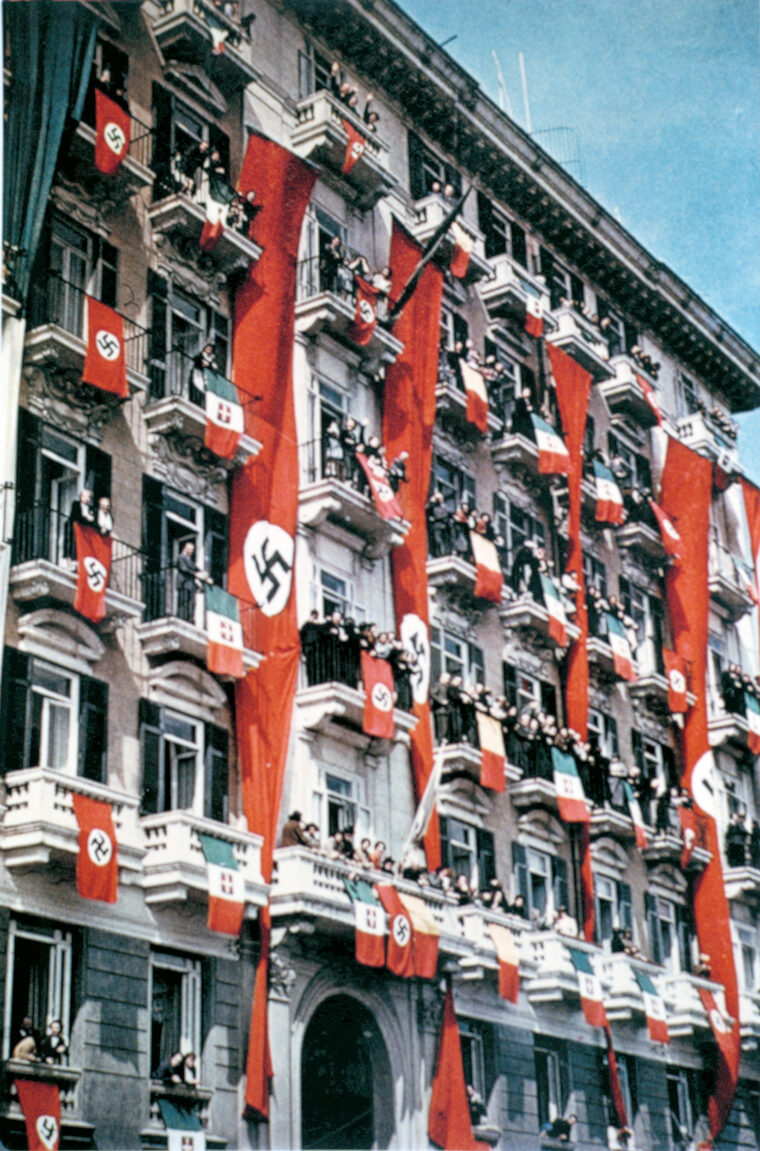
Now, just above Tobruk, Balbo started to prepare for a landing while the pilot behind wisely gained altitude instead and veered off to the left. Balbo proceeded, and his plane was mistaken by the naval gunners below for a Royal Air Force Blenheim bomber returning for a second pass at the heavily fortified port.
Meanwhile, confusion reigned on the ground where there was a dearth of even binoculars for the gun commanders, the gunners were poorly trained, the Savoia Marchetti’s humped fuselage was not identified in time, and a single Italian machine gunner let off four or five rounds before realizing his mistake.
A Real Inferno Unleashed
According to Dr. Segré, “The first volley, however, set off the entire anti-aircraft network: ‘Everyone was firing: from land, from the cruiser San Giorgio, from submarines, from the ships; a real inferno was unleashed around the two aircraft,’ a ground observer remembered.”
Realizing he was under friendly fire, Balbo dove lower to land faster, putting his landing gear down, but also making himself a better target. Either a shell from the San Giorgio or a 20mm incendiary shell from a naval battery on land struck I-MANU’s fuel tanks, and the flaming bomber slid onto its left side, “crashed on the left bank overlooking the harbor,” asserts Segré, “and exploded.” The gunners broke out cheering, thinking they had indeed shot down an enemy plane.
Hitler’s Ironic Eulogy
The fire burned for several hours, and Balbo was identified only by his dental remains from the charred wreckage. A coffin lay in state at his office in Tripoli for two days, and official mourning lasted for five. Il Duce merely shrugged when told of Balbo’s removal by the hand of death. Göring attended a memorial service in Berlin with the Italian ambassador. In 1970, Balbo’s family brought his remains home from Libya, and he is buried near Orbetello, his famous air training ground. His gravestone bears no epitaph.
Ironically, it was Hitler, on August 5, 1942 at his Führer Headquarters in the Ukraine, who provided the best remembrance of Balbo to his listeners: “The death of Balbo was a great tragedy; there was a worthy successor of the Duce, a man who had something of the Renaissance in him! A man whose name alone was worth something! Balbo had the great advantage that he had equal influence with both Party and armed forces, and it is an ironic fate that he should have been shot down by Italian anti-aircraft guns.”
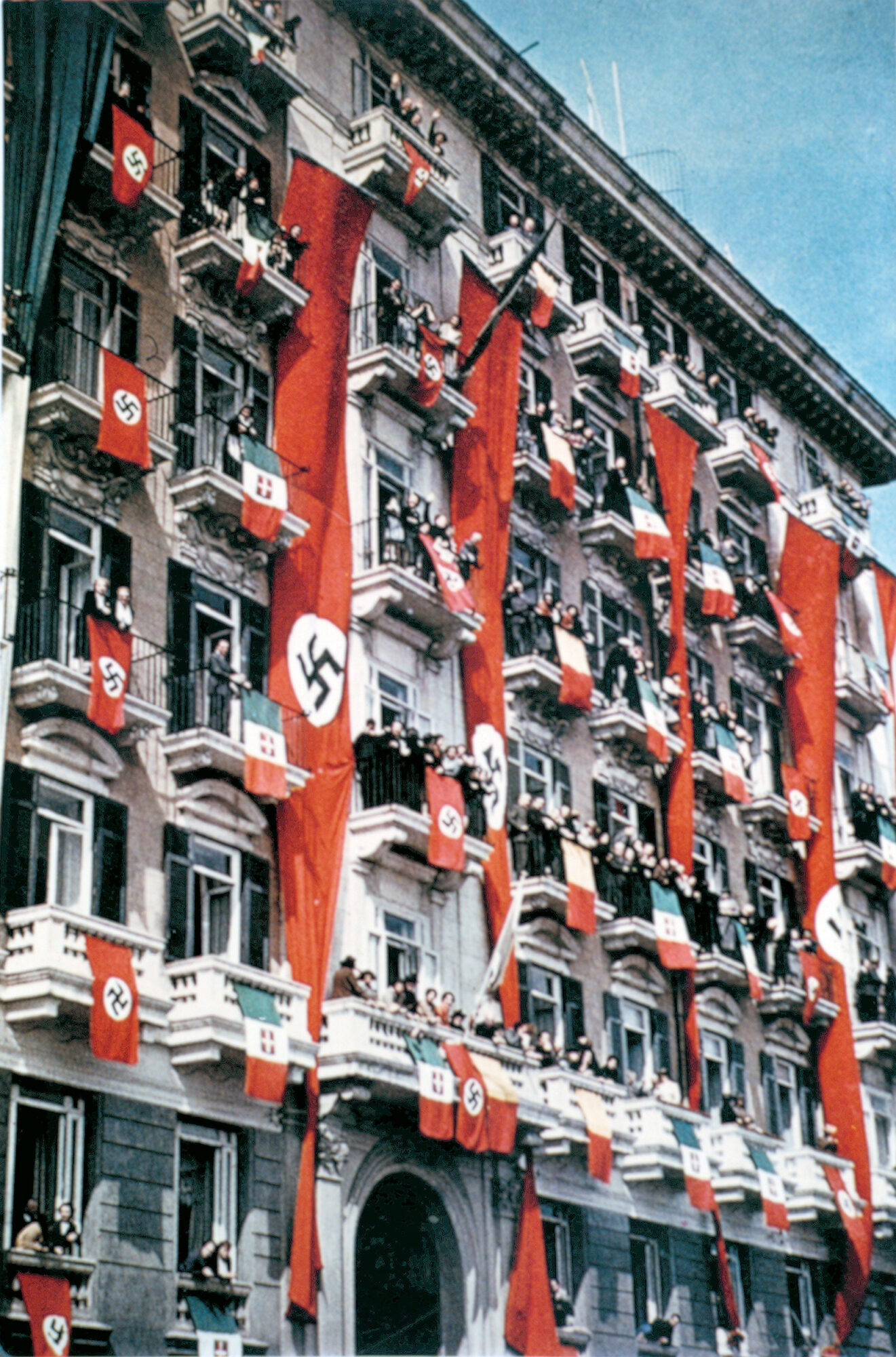
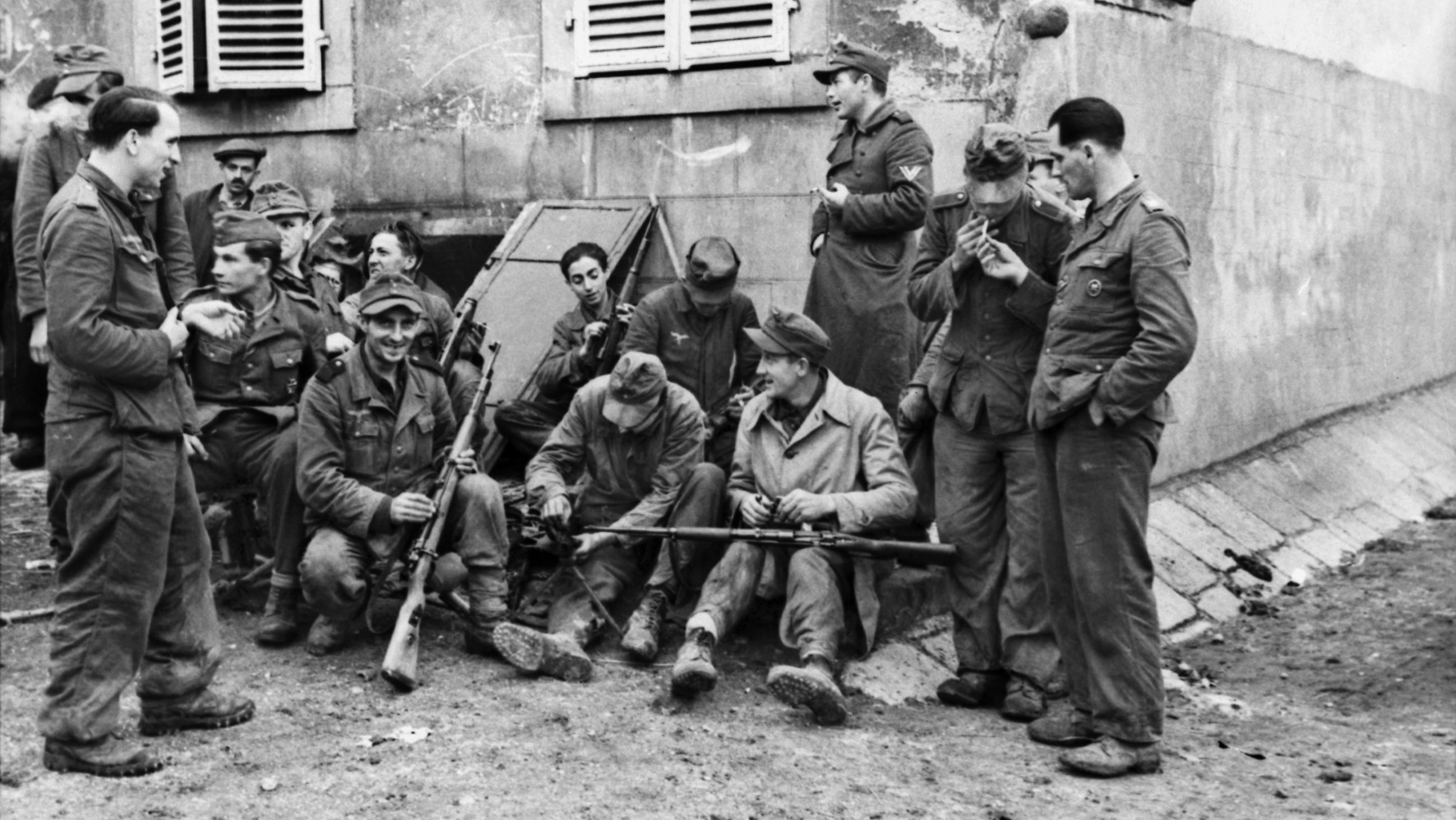
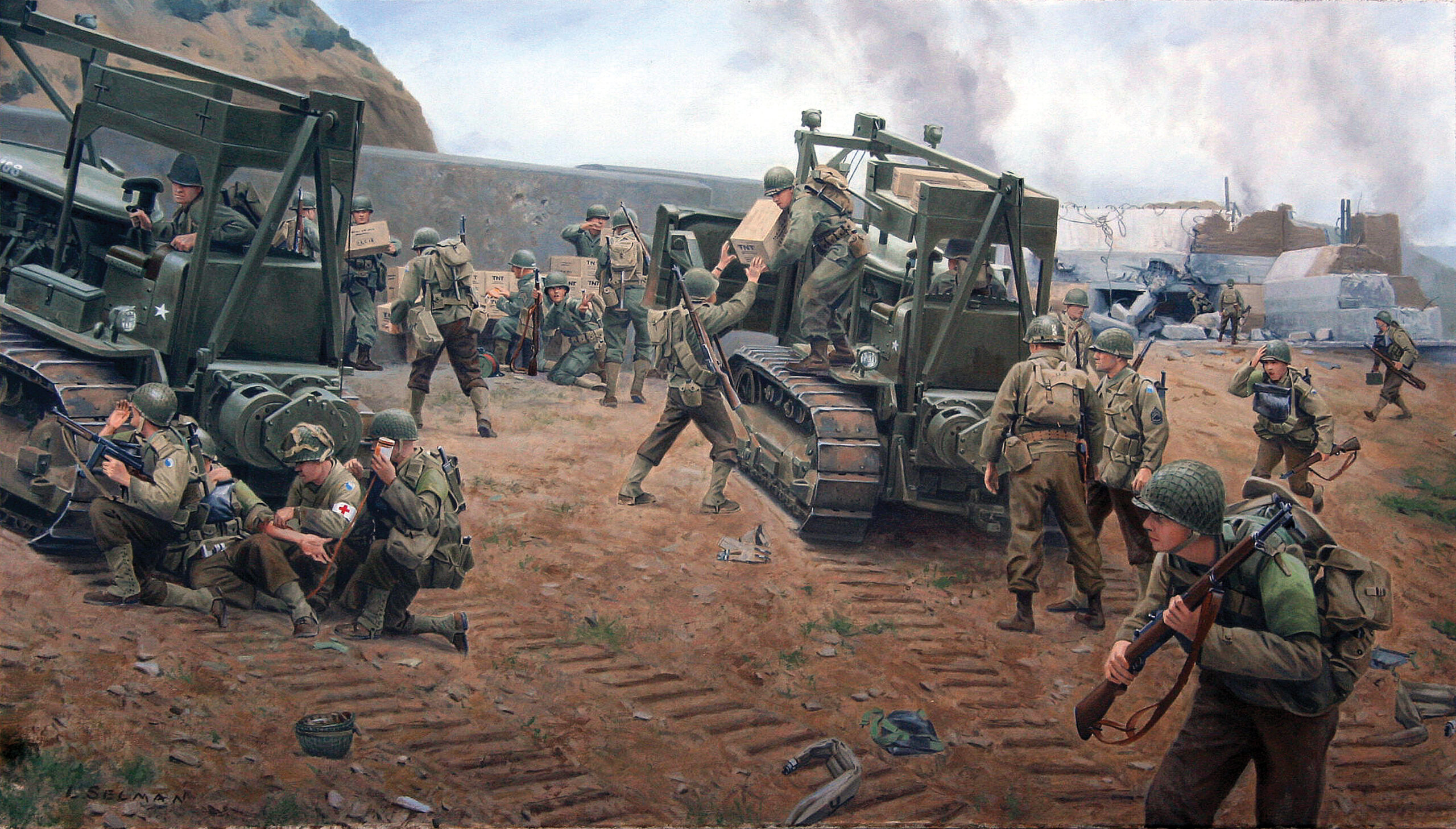

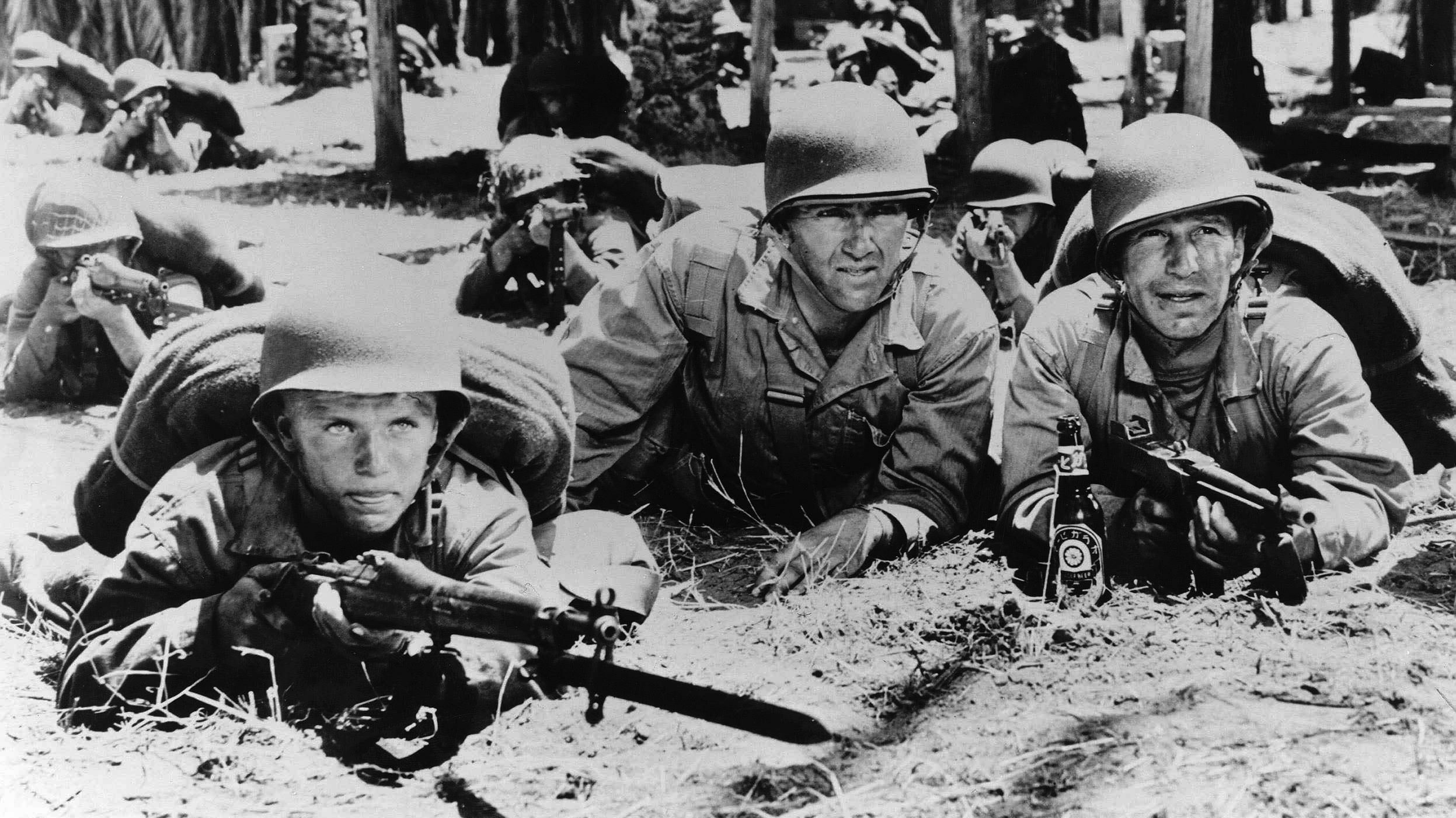
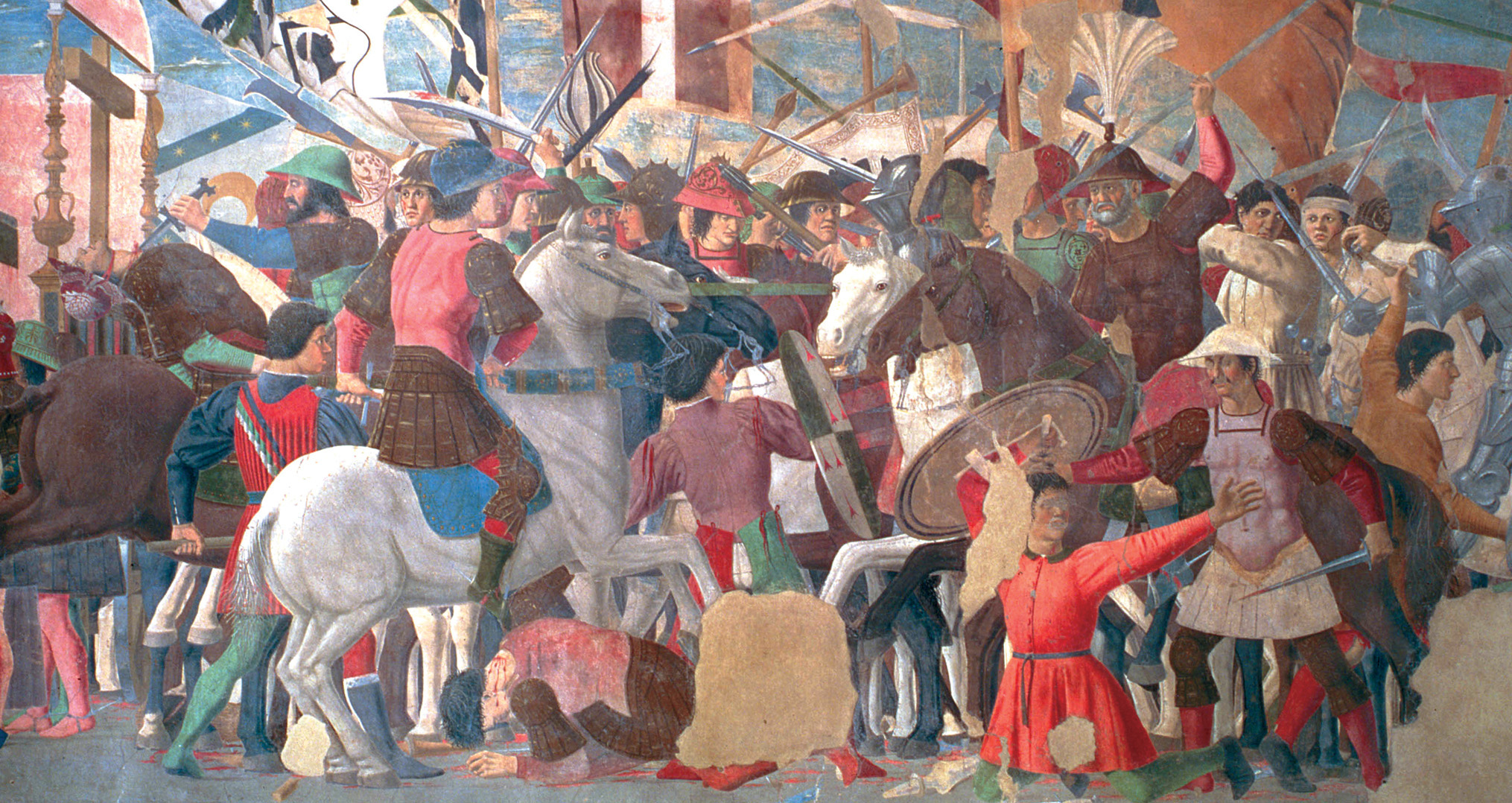
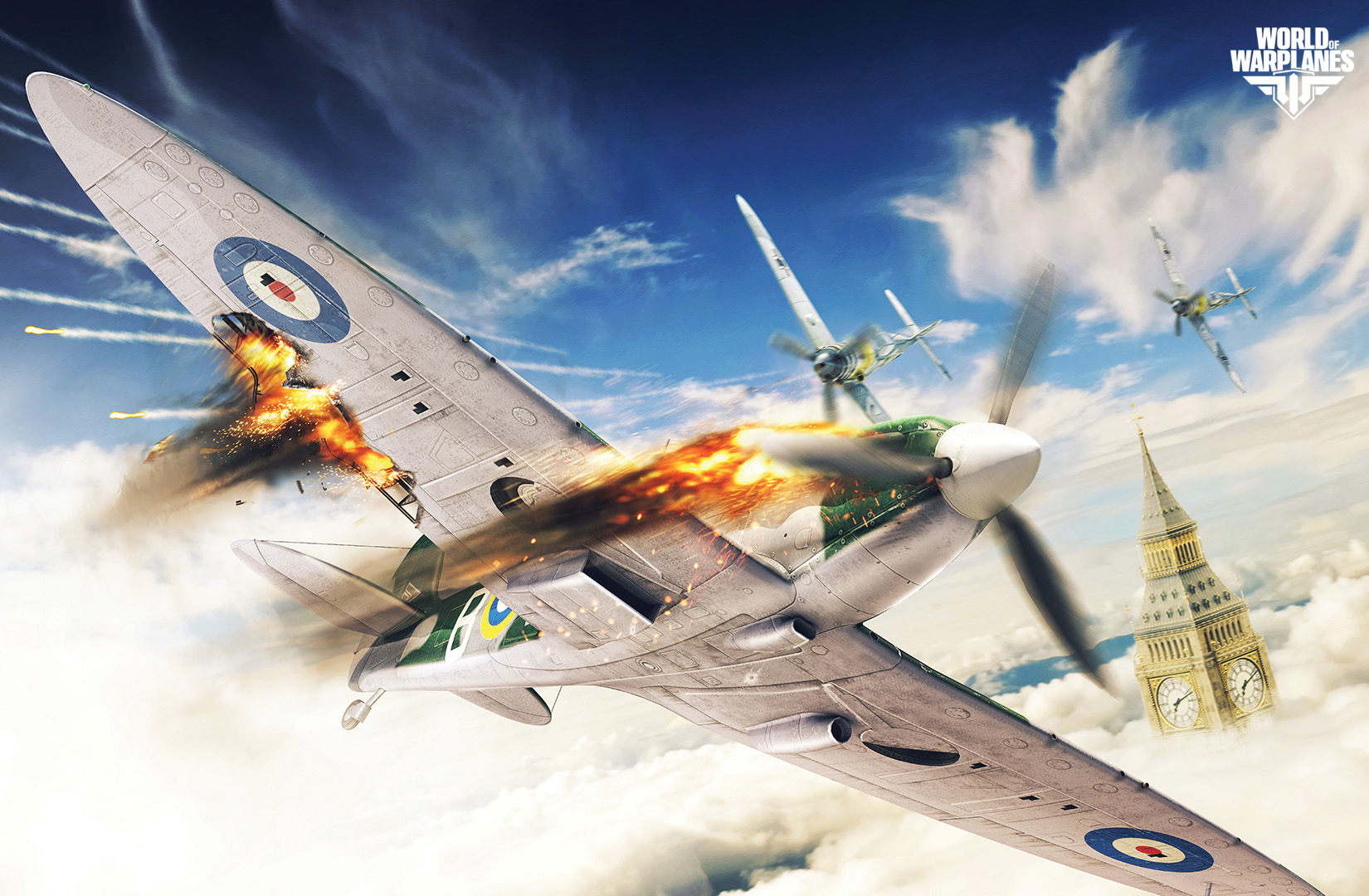
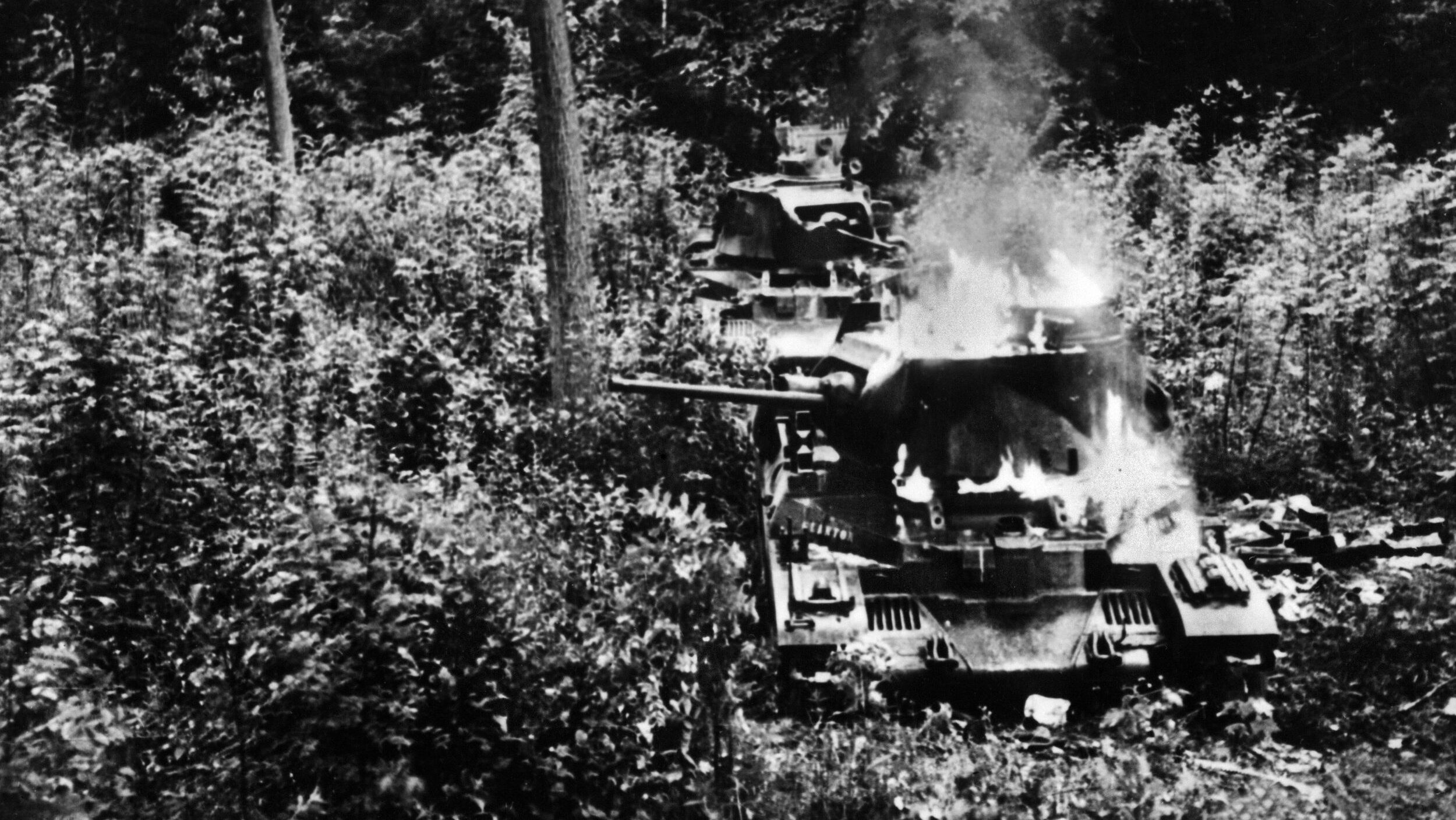
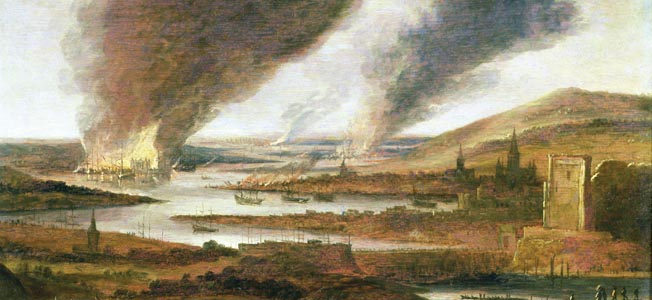
Join The Conversation
Comments
View All Comments